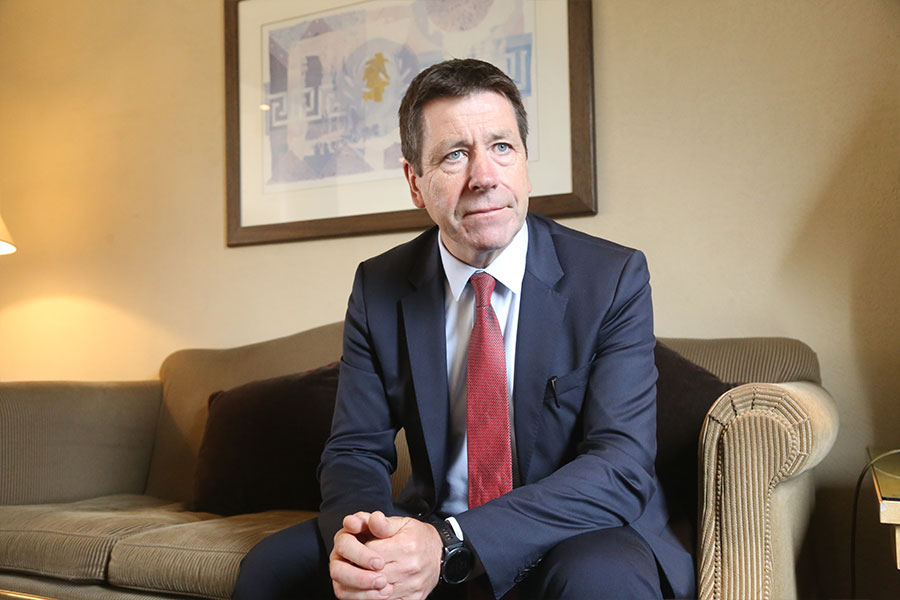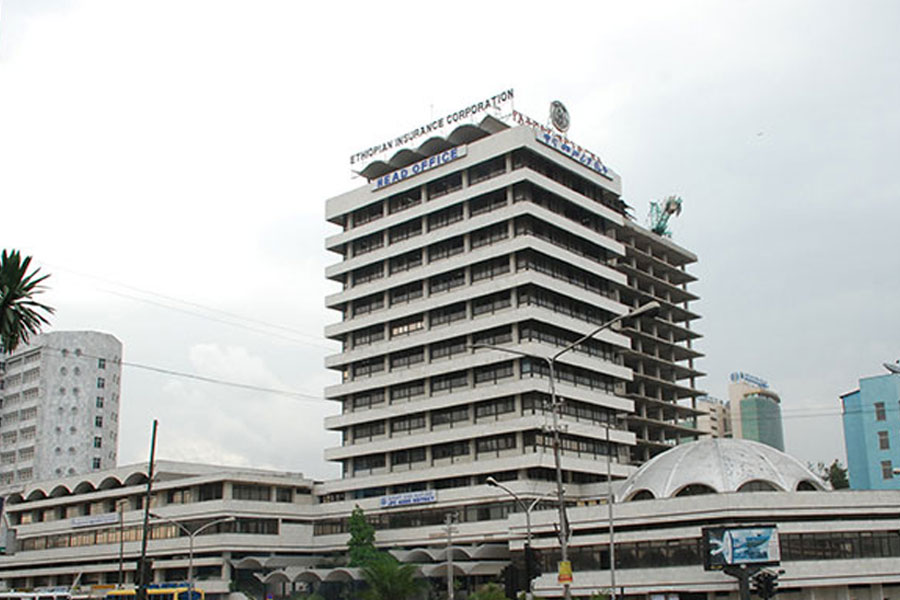
Editorial | Nov 02,2024
Ethiopia’s central bank has set forth an ambitious monetary policy overhaul in an audacious move emblematic of global efforts to rein in economic turmoil.
The changes aim squarely at taming the inflationary beast that has taken root in the aftermath of a two-year war, threatening the country’s economic footing. The war exacerbated Ethiopia’s budget deficit, which increased to 3.4pc of the GDP by 2021/22.
Despite recent signals of progress in inflation control – with June 2023’s year-on-year headline inflation dipping below 30pc for the first time in two years – the problem is far from being addressed. The urgency for intervention is evident, with food inflation remaining high and non-food inflation showing an uptick.
Complex factors drive Ethiopia’s inflation, ranging from supply-side constraints to broader macroeconomic policies. The country’s internal conflicts and a global surge in commodity prices have only added fuel to the inflationary fire. Notably, global oil prices jumped 140pc between mid-2020 and mid-2022.
Efforts to buffer the economy against shocks, like the pandemic and militarised conflicts, led to lax fiscal and monetary policies, which inadvertently worsened inflation. Now, the central bank aims to restore balance. Perhaps for the first time in decades, its officials plan to target inflation, addressing food prices, which constitute 54pc of the Consumer Price Index (CPI). Their latest decision to limit credit growth is seen as both audacious and shrewd, for the Central Bank is not halting credit but aims to manage its expansion more cautiously.
Mamo Mihretu, governor of the National Bank of Ethiopia (NBE), candidly addressed the challenges the economy has been grappling with, particularly the inflation rate, which he admitted was aggravated by “uncharacteristically loose” fiscal and monetary policies over the past two years.
“These were deemed necessary to mitigate the impact of the war, drought, and the massive internal displacement,” the Govenor said in a press conference at the Central Bank’s headquarters on Sudan Street. “But we’re seeing the consequences.”
Yet, the challenges of war and conflicts are not the only culprits. Diminished foreign aid, a budget deficit ballooning to 76.5 billion Br in the third quarter of the fiscal year and exacerbated by global price hikes have all contributed to the turmoil. Governor Mamo rolled out a set of aggressive changes, including capping loans to the federal government at one-third of the current value. It is a bold move, considering the direct advances to the central government had surged by a staggering 91pc at the end of last year, culminating in 159 billion Br.
Fiscal and monetary experts, who have long argued for budget discipline and a tighter monetary stance, met the announcements with approval.
Abdulmenan Mohammed (PhD), a London-based financial analyst, one of the experts pleased with the decision, concurs with a general policy shift towards an interest-based monetary policy framework. He emphasised on political autonomy of the central bank as of first-order importance. Successfully moving past the reserve-prioritising central banking framework requires a simultaneous upgrade to the structural integrity of the institution, according to Abdulmenan.
The mandatory treasury bond purchases of commercial banks imposed by the central bank contradicted a general orientation towards politically independent central banking, he argued.
“The central bank's independence is crucial for its effectiveness,” he told Fortune.
Tewodros Mekonen (PhD), a macroeconomist with ties to the London School of Economics, agrees that abandoning the reserve-based orientation in monetary policy requires credible institutions but asserts that development objectives in a poor country can be calibrated by maintaining the transparency of the central bank despite slight nudges from the government. He characterised the new trajectory of the Central Bank as a hybrid of interest and reserve-based monetary policy frameworks.
“It’s a return to a more sensible, stringent fiscal approach,” Abdulmenan told Fortune. “However, while commendable, aiming for a 20pc inflation rate might be a tad optimistic."
Tewodros echoed this sentiment.
“While the measures are steps in the right direction, the federal government must exercise caution and avoid viewing the central bank as an open treasury,” he told Fortune.
Central Bank’s gross claims (including direct advance and bonds) on the central government stood at 514 billion Br until March, about 48pc higher than the previous year. Direct advances have already reached 80 billion Br until the same period. The Central Bank has set an aggregate credit growth ceiling of 14pc for the year. Meanwhile, Mamo maintained that the rate would not decrease total borrowing but merely keep it from ballooning unnecessarily.
The international community and multilateral financial institutions like the IMF have consistently advocated for a blend of interest and reserve-based monetary policy frameworks for countries like Ethiopia. The recent Central Bank moves seem to respond to these recommendations, hinting at a more significant geopolitical alignment and potential international engagement.
The Central Bank has increased its emergency lending rate to commercial banks by two percentage points to 18pc. A two-pronged approach to curtail inflation with a target of 20pc by the end of 2024 and an ambitious 10pc within the next two years is also in store, while the Governor and his Board, chaired by Girma Biru, opted to redirect the economy towards a focus on price stability, signalling an end to the erstwhile fiscal `loose` approach.
Amid these changes, exporters, crucial economic players, have been handed a lifeline. They must now surrender 50pc of their foreign exchange earnings to the central bank and 10pc to commercial banks. This is a significant drop from the previous 70pc forex surrender requirement, a move hailed mainly by the exporter community.
Sisay Amare, who heads the Ethiopian Pulses, Oilseeds & Spices Processors Exporters Association (EPOSPEO), welcomed the forex adjustment.
“We’ve been advocating for a change in these,” he told Fortune. “This could mean an uptick in our foreign exchange accounts.”
While the Association President recognises the role of a lower retention rate for exporters in declining forex inflow, he disclosed that too much of it would be spent on importing consumption goods.
“Even if the forex surrender rate were zero, the import demand would not be met,” he told Fortune.
Gizat Worku, a leading Ethiopian coffee export business figure, concurred.
“This is an incentivising move,” he said. “We’ve already stored export-ready coffee, promising good revenue ahead of the next harvest season.”
Despite a mix of policies over the decades, Ethiopian coffee exports have quivered around a billion dollars reaching an all-time high last year at 1.4 billion dollars from 300,000tns. Gizat indicated that several levers and gears would need to be tweaked in productivity and efficiency to tackle the forex woes of a country largely reliant on agricultural produce for its forex earnings.
However, both exporters caution against seeing this as a long-term panacea. Ethiopia’s export portfolio, especially its coffee exports, needs a deeper structural revamp to ensure consistent foreign currency inflows.
The Ethiopian banking sector, having ridden a wave of lending, is bracing for these changes. The Central Bank’s decision to limit credit growth and hike interest rates on emergency loans is expected to constrain the money supply in the economy.
As of 2023, a notable growth in loans and advances was recorded, which saw a sharp increase of 35pc, reaching 1.4 trillion Br from one trillion Birr in 2022. The increase in loans and advances coincides with a shift in the type of deposits held by commercial banks. Time deposits saw a 25pc increase, reaching 600 billion Br, suggesting a growing preference for longer-term savings plans. Demand deposits, however, saw moderate growth of 15pc, totalling 400 billion Br. Commercial bank disbursement of new loans had shot up by 30pc last year with 427.9 billion Br in fresh loans.
Tewodros argued that despite credit growth over the years, most funds have been absorbed by the public sector through the state-owned behemoth, the Commercial Bank of Ethiopia (CBE). The share of the private sector in outstanding credit was 868.2 billion Br, which stood at 54.6pc of a whopping 1.5 trillion Br total by the end of last year.
“The private sector has been crowded out of the credit market,” he said while indicating that governments are generally inefficient resource allocators.
Aklilu Wubet, president of Wegagen Bank, is optimistic.
“Inflation has become a formidable challenge for the Ethiopian economy,” he told Fortune. “It’s imperative for banks to rally behind efforts to stabilise our economic landscape.”
Wegagen has been returning in the game, netting half a billion Birr profit last year, registering a 335pc increase from the previous year. Outstanding credit of the banking system (including corporate bonds) increased 23.9pc and reached 1.6 trillion Br last year.
Aklilu had expected the move by the Central Bank to limit credit growth and increase interest rates on emergency loans to limit the money supply in the economy.
“Excess credit might be fueling inflation,” said Aklilu.
But challenges remain. As the banking sector comes to terms with the tighter monetary leash, there is potential for credit rationing and market distortions.
Warns Abdulmenan: “We could see a preference for certain customers, potentially leading to corrupt lending practices.”
Yet, there is a golden thread in this financial tapestry: communication. Governor Mamo’s new direction underscores the importance of transparent communication, bolsters market trust and ensures accountability.
The economist, Tewodros, summed up the sentiment succinctly: “Consistent application of publicly stated policy garners trust in the market.”
PUBLISHED ON
Aug 12,2023 [ VOL
24 , NO
1215]

Editorial | Nov 02,2024

Addis Fortune | Aug 01,2022

Commentaries | Jul 30,2022

Delicate Number | Jul 13,2025

Radar | Nov 09,2024

Fortune News | May 27,2023

Fortune News | Aug 17,2025

Fortune News | Oct 13,2024

Fortune News | May 08,2021

Radar | Oct 12,2024

Dec 22 , 2024 . By TIZITA SHEWAFERAW
Charged with transforming colossal state-owned enterprises into modern and competitiv...

Aug 18 , 2024 . By AKSAH ITALO
Although predictable Yonas Zerihun's job in the ride-hailing service is not immune to...

Jul 28 , 2024 . By TIZITA SHEWAFERAW
Unhabitual, perhaps too many, Samuel Gebreyohannes, 38, used to occasionally enjoy a couple of beers at breakfast. However, he recently swit...

Jul 13 , 2024 . By AKSAH ITALO
Investors who rely on tractors, trucks, and field vehicles for commuting, transporting commodities, and f...

Oct 11 , 2025
Ladislas Farago, a roving Associated Press (AP) correspondent, arrived in Ethiopia in...

Oct 4 , 2025
Eyob Tekalegn (PhD) had been in the Governor's chair for only weeks when, on Septembe...

Sep 27 , 2025
Four years into an experiment with “shock therapy” in education, the national moo...

Sep 20 , 2025
Getachew Reda's return to the national stage was always going to stir attention. Once...